VW Golf Variant VS Mercedes EQT – Specs, Efficiency & Price Comparison
Which model is the better choice – the VW Golf Variant or the Mercedes EQT? We compare performance (333 HP vs 122 HP), boot capacity (611 L vs 551 L), efficiency (4.40 L vs 19.50 kWh), and of course, the price (25200 £ vs 30700 £).
Find out now which car fits your needs better!
The VW Golf Variant (Estate) is powered by a Petrol MHEV, Petrol or Diesel engine and comes with a Automatic or Manuel transmission. In comparison, the Mercedes EQT (High Roof Estate) features a Electric engine and a Automatic gearbox.
When it comes to boot capacity, the VW Golf Variant offers 611 L, while the Mercedes EQT provides 551 L – depending on what matters most to you. If you’re looking for more power, you’ll need to decide whether the 333 HP of the VW Golf Variant or the 122 HP of the Mercedes EQT suits your needs better.
There are also differences in efficiency: 4.40 L vs 19.50 kWh. In terms of price, the VW Golf Variant starts at 25200 £, while the Mercedes EQT is available from 30700 £.
Compare all the key specs now and find out which model fits your lifestyle best!
VW Golf Variant
The VW Golf Variant represents a seamless blend of practicality and style, catering to drivers who require extra space without compromising on aesthetics. Its refined design and spacious interior make it an ideal choice for families and individuals with an active lifestyle. With advanced technology and a smooth driving experience, this estate car continues to impress within its class.
details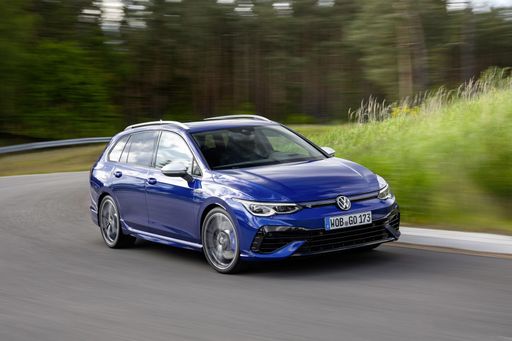 @ Volkswagen
@ Volkswagen
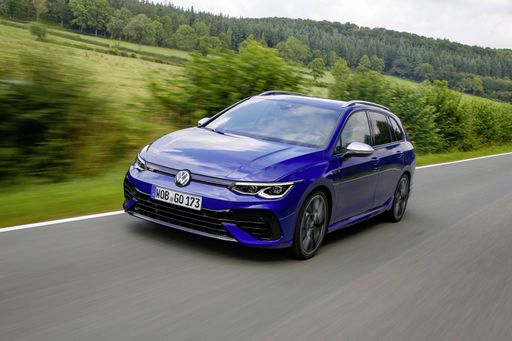 @ Volkswagen
@ Volkswagen
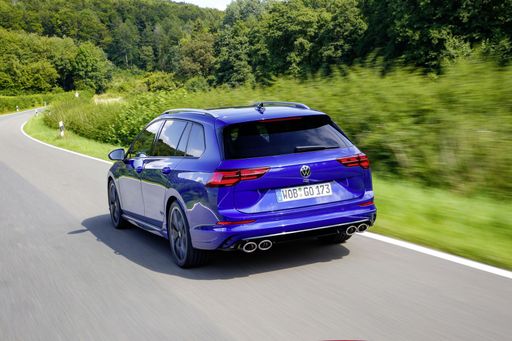 @ Volkswagen
@ Volkswagen
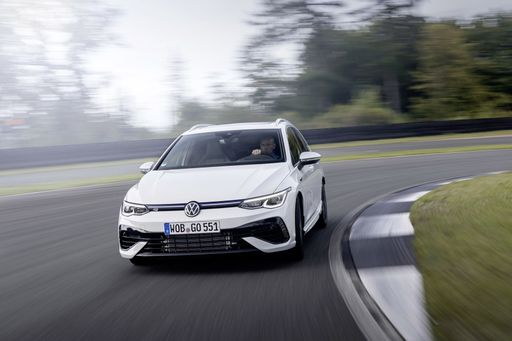 @ Volkswagen
@ Volkswagen
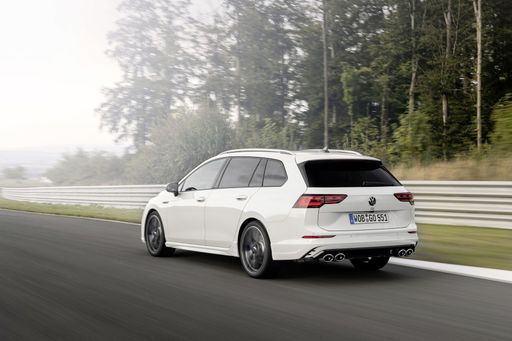 @ Volkswagen
@ Volkswagen
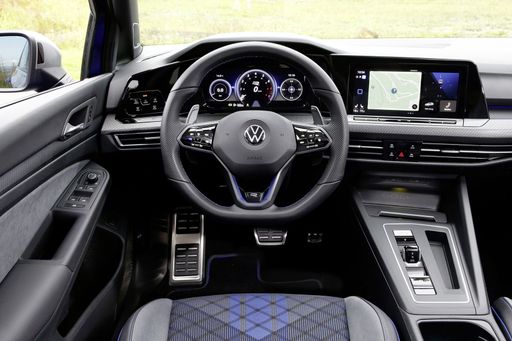 @ Volkswagen
@ Volkswagen
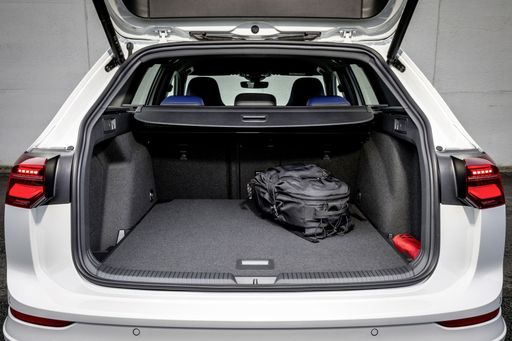 @ Volkswagen
@ Volkswagen
Mercedes EQT
The Mercedes-Benz EQT represents a new chapter in the world of electric vehicles, seamlessly combining elegance with practicality. Its interior offers a sophisticated design, featuring premium materials and advanced technology to ensure a comfortable driving experience. On the road, the EQT impresses with its smooth handling and efficient electric powertrain, making it a strong contender in the growing market of eco-friendly family cars.
details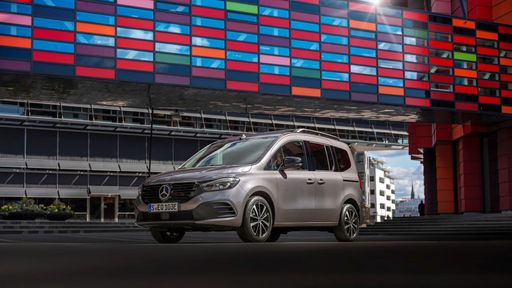 @ Mercedes-Benz
@ Mercedes-Benz
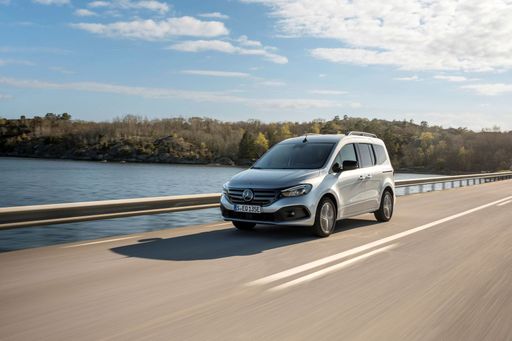 @ Mercedes-Benz
@ Mercedes-Benz
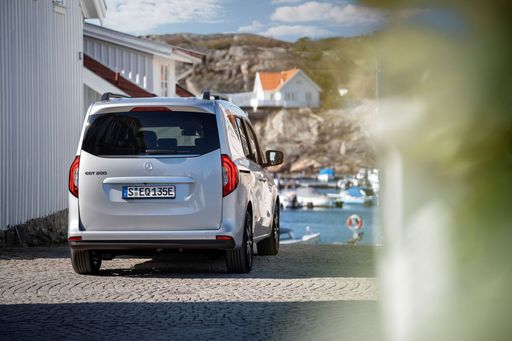 @ Mercedes-Benz
@ Mercedes-Benz
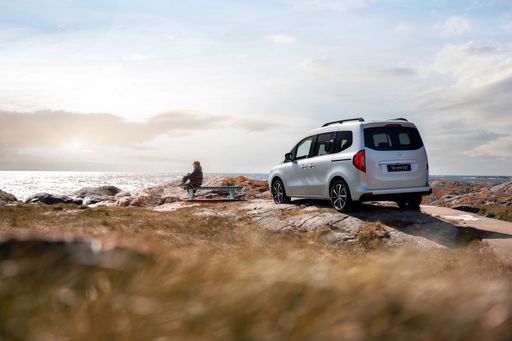 @ Mercedes-Benz
@ Mercedes-Benz
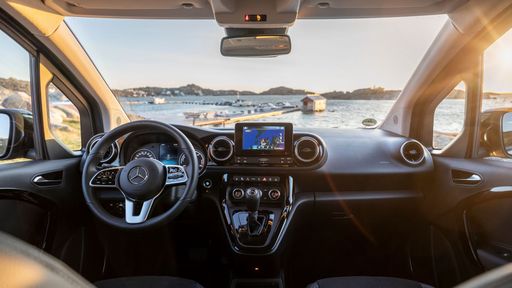 @ Mercedes-Benz
@ Mercedes-Benz

|

|
|
|
|
Costs and Consumption |
|
|---|---|
|
Price
25200 - 48200 £
|
Price
30700 - 35000 £
|
|
Consumption L/100km
4.4 - 8.2 L
|
Consumption L/100km
-
|
|
Consumption kWh/100km
-
|
Consumption kWh/100km
19.5 - 20.8 kWh
|
|
Electric Range
-
|
Electric Range
265 - 278 km
|
|
Battery Capacity
-
|
Battery Capacity
45 kWh
|
|
co2
115 - 185 g/km
|
co2
0 g/km
|
|
Fuel tank capacity
45 - 55 L
|
Fuel tank capacity
-
|
Dimensions and Body |
|
|---|---|
|
Body Type
Estate
|
Body Type
High Roof Estate
|
|
Seats
5
|
Seats
5
|
|
Doors
5
|
Doors
5
|
|
Curb weight
1366 - 1621 kg
|
Curb weight
1925 - 2023 kg
|
|
Trunk capacity
611 L
|
Trunk capacity
242 - 551 L
|
|
Length
4631 - 4651 mm
|
Length
4498 - 4922 mm
|
|
Width
1789 mm
|
Width
1859 mm
|
|
Height
1462 - 1487 mm
|
Height
1819 - 1830 mm
|
|
Payload
489 - 547 kg
|
Payload
457 - 531 kg
|
Engine and Performance |
|
|---|---|
|
Engine Type
Petrol MHEV, Petrol, Diesel
|
Engine Type
Electric
|
|
Transmission
Automatic, Manuel
|
Transmission
Automatic
|
|
Transmission Detail
Automat. Schaltgetriebe (Doppelkupplung), Schaltgetriebe
|
Transmission Detail
-
|
|
Drive Type
Front-Wheel Drive, All-Wheel Drive
|
Drive Type
Front-Wheel Drive
|
|
Power HP
116 - 333 HP
|
Power HP
122 HP
|
|
Acceleration 0-100km/h
4.8 - 10.5 s
|
Acceleration 0-100km/h
12.60 s
|
|
Max Speed
202 - 250 km/h
|
Max Speed
132 km/h
|
|
Torque
220 - 420 Nm
|
Torque
245 Nm
|
|
Number of Cylinders
4
|
Number of Cylinders
-
|
|
Power kW
85 - 245 kW
|
Power kW
90 kW
|
|
Engine capacity
1498 - 1984 cm3
|
Engine capacity
-
|
General |
|
|---|---|
|
Model Year
2024
|
Model Year
2023 - 2024
|
|
CO2 Efficiency Class
D, C, G
|
CO2 Efficiency Class
A
|
|
Brand
VW
|
Brand
Mercedes-Benz
|
VW Golf Variant
The Versatile Allure of the VW Golf Variant
The VW Golf Variant continues to solidify its place in the automotive world as a resourceful and reliable estate car, sweeping across European roads with its sleek design and robust engineering. In the 2024 model year, VW introduces a range of technical enhancements and innovative features that elevate this standard bearer of practicality and performance.
Powertrains: Efficiency Meets Performance
Under the bonnet, the VW Golf Variant offers an impressive variety of powertrains designed to satisfy varying needs and driving conditions. From the refined 1.5 TSI petrol engines, available in manual and dual-clutch automatic transmission options, to the fuel-sipping 2.0 TDI diesel variants, the Golf Variant aims to strike a balance between performance and economy. Petrol mild-hybrid configurations further enhance efficiency, offering a smart blend of power delivery and reduced CO2 emissions.
Engine Specifications and Fuel Consumption
The power range spans from 116 PS in the entry-level models up to a robust 333 PS in the Volkswagen Golf Variant R, catering to those with a craving for speed and agility. Fuel consumption varies according to engine choice, starting as low as 4.4 L/100km for the efficient diesel models. Such performance is complemented with low CO2 emissions, aligning the vehicle with modern environmental standards.
Innovative Features and Technology
VW’s iconic estate car thrives on technology-driven advancements. With seamless integration of an advanced infotainment system and digital cockpit, driving becomes both intuitive and enjoyable. The variety of safety features, such as adaptive cruise control and lane-keeping assist, ensure confidence behind the wheel. Embracing a future-forward approach, the mild-hybrid variants introduce energy recuperation systems that optimise fuel usage, showcasing VW's commitment to sustainability.
Interior Comfort and Practicality
The VW Golf Variant is synonymous with comfort and spaciousness. With a commodious boot space of 611 litres, it accommodates families and professionals alike, making it an ideal choice for long journeys and everyday errands. High-quality materials adorn the interior, providing drivers and passengers with a sophisticated and comfortable environment.
Performance and Driving Dynamics
Driving enthusiasts will appreciate the Variant’s dynamic handling, facilitated by an array of engine choices and drivetrain configurations. Whether it's the front-wheel-drive versions that offer exceptional maneuverability or the 4MOTION all-wheel-drive option in the R variant providing enhanced traction, the Golf Variant promises an engaging driving experience.
Conclusion: A Staple for Modern Motoring
The 2024 VW Golf Variant stands as a testament to VW's legacy of developing cars that combine practicality, performance, and cutting-edge technology. Whether it is serving as a family car or a dynamic commuter, its various configurations ensure that it remains a formidable choice for a wide array of drivers.
Mercedes EQT
Revolutionising the Road: The Mercedes-Benz EQT
Mercedes-Benz continues to redefine the automotive landscape with its groundbreaking electric vehicles, and the EQT is no exception. Combining cutting-edge technology with Mercedes-Benz's celebrated design ethos, the EQT is poised to make a significant impact in the world of electric transport.
Electrifying Performance
At the heart of the EQT's performance is its robust electric motor, delivering a commendable 122 PS (90 kW). This powertrain is perfectly complemented by a smooth and efficient automatic transmission, ensuring that all journeys are as seamless as they are enjoyable. With a torque of 245 Nm, the EQT is able to effortlessly tackle city streets and motorways alike.
Efficiency and Range
One of the standout features of the EQT is its impressive efficiency. With an energy consumption range of 19.5 to 20.8 kWh per 100 km, this model offers an electric range between 265 and 278 km, making it an ideal companion for both urban commutes and weekend getaways. The battery capacity allows for a balance between range and weight, optimising the vehicle’s performance.
Designed for Versatility
True to its class as a high-roofed estate, the EQT offers impressive versatility. Its spacious interior accommodates five seats comfortably, while offering a luggage capacity ranging from 242 to 551 litres, perfect for family trips or transporting sports equipment. With a total length spanning from 4498 mm to 4922 mm, the EQT maintains practicality without compromising style.
Advanced Safety and Technology
The EQT is equipped with a plethora of safety features and driving aids, ensuring that each journey is not only comfortable but also secure. The model boasts excellent CO2 efficiency with a classification of A, underscoring its commitment to a sustainable future.
Customisable Luxury
Mercedes-Benz offers various trim levels and customisation options such as Advanced Plus, Premium, and Premium Plus, enabling owners to personalise their EQT according to their preferences. This personalisation, combined with the car's already comprehensive standard features, provides an exquisite driving experience.
Economics of Electric Driving
While the initial investment ranges between €39,623 and €44,906, the EQT offers competitive running costs with an estimated monthly expenditure between €1,042 and €1,094 and a per-kilometre cost ranging from 41.7 to 43.8 cents. These economic efficiencies make the EQT an attractive proposition for those looking to reduce their carbon footprint.
Conclusion: A Visionary Future
The Mercedes-Benz EQT stands out as a pioneering force in the realm of electric vehicles, offering a blend of performance, practicality, and sustainability. As the automotive industry continues to evolve, the EQT represents Mercedes-Benz's commitment to innovation and environmental responsibility. With its refined elegance and forward-thinking technology, the EQT is more than just a vehicle—it's a glimpse into the future of driving.
The prices and data displayed are estimates based on German list prices and may vary by country. This information is not legally binding.
